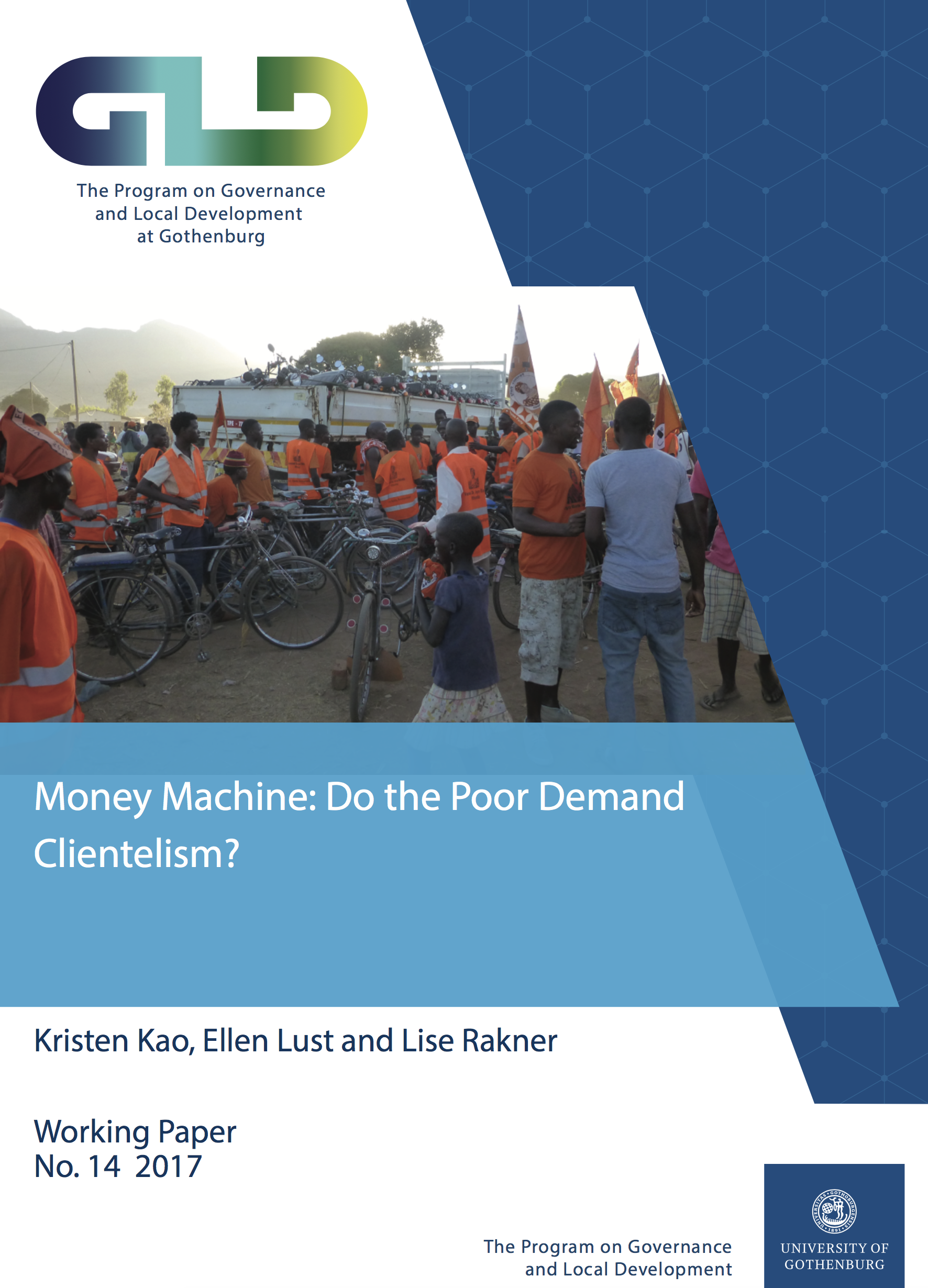No.14 Money Machine: Do the Poor Demand Clientelism?
Kristen Kao, Ellen Lust and Lise Rakner
Abstract
The literature on clientelism suggests that the poor are particularly likely to exchange their votes for cash or material goods. In this supply-side perspective, candidates are more likely to offer goods in return for votes to the poor because the poor sell their votes at a lower price, are more likely to act reciprocally, and are less likely to see vote-buying as morally unacceptable. We know much less about the poor’s demand for vote-buying. Studies suggest that the middle class punishes vote-buying candidates, but assume that the poor welcome offers. Employing a rating-based, conjoint analysis in Malawi to examine the poor’s preferences over vote-buying, we find that the poor are repelled by candidates who promise an immediate exchange of particularistic goods for votes and prefer candidates who promise community goods. This highlights the need to consider the possibility that candidates incur costs when offering to buy votes in poor communities
